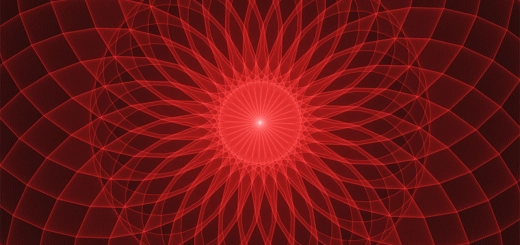Taoism and Martial Arts: The Way of Harmony

Looking for more amazing products? Check out our online store and explore our collection here! Happy shopping!
Before diving in, please note: This post is for informational purposes only. If you’d like to know more about how we approach topics, feel free to check out our friendly Disclaimer Page.
Hey there, amazing readers! 
We’re committed to delivering quality posts, and your support (even just sticking around despite the ads) means everything to us. So, bear with us, and thanks for helping us keep the good vibes rolling. Now, on to the fun stuff!
TRANSLATE BUTTON AT THE END OF THE ARTICLE
A Quick Overview: Introduction to Taoism and Martial Arts
Taoism and martial arts have a deep-rooted connection that goes back centuries.
Taoism, an ancient Chinese philosophy and religion, emphasizes living in harmony with the Tao, which translates to "the Way" or "the path." Martial arts, on the other hand, encompass various combat practices and techniques that have been developed over time for self-defense, physical fitness, and spiritual growth.
The combination of Taoist principles with martial arts creates a unique approach to combat that focuses on balance, harmony, and fluidity in movement.
Origins of Taoism and Martial Arts
Taoism originated in China around the 4th or 3rd century BCE, with Laozi credited as its founder.
The philosophy emphasizes the concept of yin and yang, the duality of existence, and the importance of living in accordance with nature.
Martial arts in China have a long history, with early developments traced back to the Xia and Shang dynasties.
These combat techniques were often influenced by Taoist principles, incorporating ideas of balance, flexibility, and adaptability in fighting.
Principles of Taoism in Martial Arts
The principles of Taoism are deeply ingrained in martial arts practices.
Taoist philosophy teaches practitioners to move with the flow of energy, adapt to change, and find harmony in all actions.
In martial arts, this translates to techniques that are fluid, balanced, and in tune with the opponent’s movements.
Practitioners are encouraged to be present in the moment, letting go of ego and preconceived notions to achieve a state of "wu wei," or effortless action.
Harmony and Balance in Taoist Practices
Harmony and balance are central tenets of Taoist practices, and they are also vital in martial arts.
In Taoism, balance is seen as the key to living a fulfilling life, while in martial arts, balance is essential for effective combat.
Practitioners learn to maintain equilibrium in body and mind, staying grounded and centered in the face of adversity.
By cultivating inner harmony and balance, martial artists can better respond to external challenges with grace and precision.
The Influence of Taoism on Martial Arts
Taoism has had a profound influence on the development of martial arts in China and beyond.
Many martial arts styles, such as Tai Chi and Baguazhang, are directly inspired by Taoist principles.
These styles emphasize slow, deliberate movements, circular patterns, and the integration of mind, body, and spirit.
Taoist concepts of softness overcoming hardness, yielding to force, and using minimal effort for maximum effect have shaped the way martial artists approach combat and self-defense.
Taoist Philosophies in Combat Techniques
Taoist philosophies are evident in the combat techniques used in martial arts.
Techniques are designed to flow seamlessly from one to the next, with an emphasis on efficiency and economy of movement.
Practitioners are taught to use the opponent’s energy against them, redirecting force rather than meeting it head-on.
By applying Taoist principles of non-resistance and flexibility, martial artists can overcome larger and stronger opponents with finesse and skill.
Taoist Meditation and Martial Arts
Meditation plays a significant role in both Taoism and martial arts.
Taoist meditation practices aim to quiet the mind, cultivate inner peace, and connect with the Tao.
In martial arts, meditation is used to focus the mind, sharpen awareness, and enhance concentration during training and combat.
By incorporating meditation into their practice, martial artists can improve their mental clarity, emotional control, and overall performance in the martial arts.
Qi and Taoist Energy in Martial Arts
Qi, or life energy, is a central concept in Taoism and traditional Chinese medicine.
In martial arts, practitioners work to cultivate and harness their Qi to enhance their physical abilities and mental focus.
Through breathing exercises, visualization techniques, and specific movements, martial artists can increase their Qi flow, leading to improved strength, stamina, and resilience.
The concept of Qi underpins many martial arts practices, with practitioners striving to develop a deep connection between mind, body, and spirit.
Taoist Weapons and Martial Arts
Taoist weapons play a significant role in certain martial arts styles, such as Tai Chi and Kung Fu.
These weapons, including swords, staffs, and spears, are extensions of the practitioner’s body and are used to enhance technique, power, and precision.
The handling of weapons in martial arts requires finesse, speed, and coordination, reflecting Taoist principles of balance, harmony, and discipline.
By mastering weapon techniques, martial artists can deepen their understanding of combat principles and refine their overall martial skills.
Famous Taoist Martial Artists
Throughout history, there have been many famous martial artists who were also followers of Taoism.
One such individual is Zhang Sanfeng, a legendary Taoist monk credited with creating Tai Chi Chuan.
Zhang Sanfeng is said to have combined Taoist philosophy with martial arts to develop a style that promotes inner peace, health, and self-defense.
Other renowned Taoist martial artists include Wong Fei-hung, a master of Hung Gar Kung Fu, and Li Ching-Yuen, a reputed martial arts expert and herbalist who lived to be over 250 years old.
Modern Applications of Taoism in Martial Arts
In the modern world, Taoist principles continue to influence martial arts practices around the globe.
Many martial artists incorporate Taoist philosophy into their training, focusing on mindfulness, adaptability, and holistic development.
By embracing Taoist principles, practitioners can enhance their combat skills, improve their physical fitness, and cultivate a deeper connection to themselves and the world around them.
The integration of Taoism in martial arts offers a pathway to personal growth, self-discovery, and spiritual enlightenment through the practice of combat.
Conclusion: The Way of Harmony in Taoism and Martial Arts
In conclusion, the relationship between Taoism and martial arts is profound and enduring, with Taoist principles shaping the way martial artists approach combat, training, and self-improvement.
By integrating Taoist philosophies into their practice, martial artists can cultivate balance, harmony, and fluidity in their movements, leading to a deeper understanding of themselves and the world around them.
The Way of Harmony in Taoism and martial arts offers a holistic approach to combat that goes beyond physical techniques, focusing on inner peace, mental clarity, and spiritual growth.
Through the practice of martial arts guided by Taoist principles, practitioners can navigate the complexities of combat with grace, resilience, and wisdom.

The Enlightenment Journey is a remarkable collection of writings authored by a distinguished group of experts in the fields of spirituality, new age, and esoteric knowledge.
This anthology features a diverse assembly of well-experienced authors who bring their profound insights and credible perspectives to the forefront.
Each contributor possesses a wealth of knowledge and wisdom, making them authorities in their respective domains.
Together, they offer readers a transformative journey into the realms of spiritual growth, self-discovery, and esoteric enlightenment.
The Enlightenment Journey is a testament to the collective expertise of these luminaries, providing readers with a rich tapestry of ideas and information to illuminate their spiritual path.
Our Diverse Expertise
While our primary focus is on spirituality and esotericism, we are equally passionate about exploring a wide range of other topics and niches 

To ensure we provide the most accurate and valuable insights, we collaborate with trusted experts in their respective domains 
Our blog originally focused on spirituality and metaphysics, but we’ve since expanded to cover a wide range of niches. Don’t worry—we continue to publish a lot of articles on spirituality! Frequently visit our blog to explore our diverse content and stay tuned for more insightful reads.
Hey there, amazing reader! 
Check out our store here and take a peek at some of our featured products below! Thanks for being awesome!











